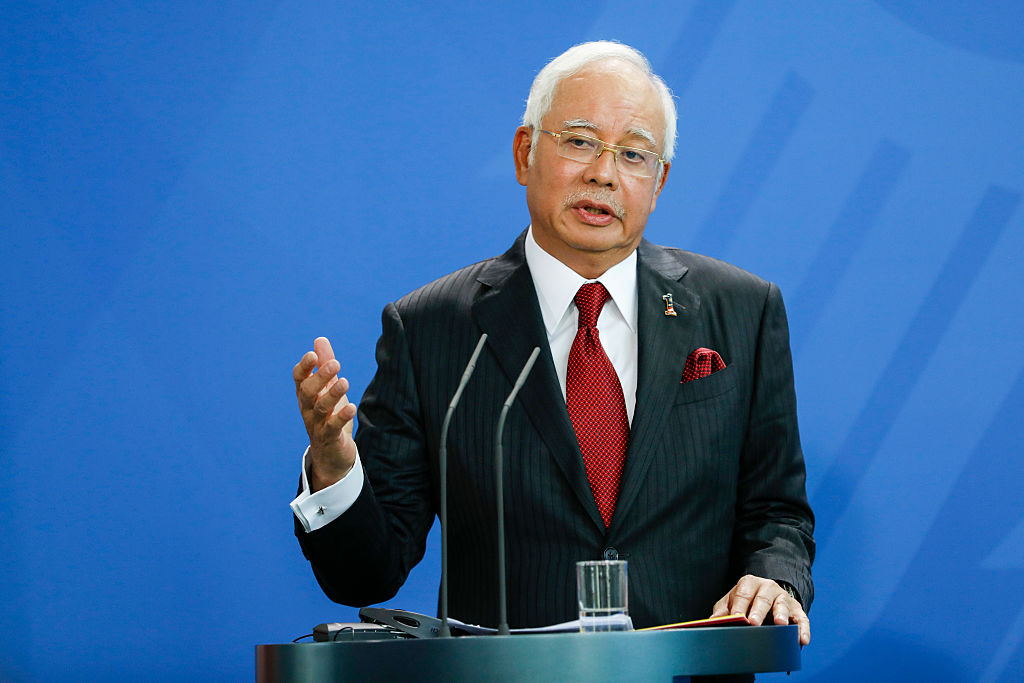Malaysian Prime Minister Najib Razak wants to settle talk about government debt once and for all.
His former political ally turned rival, former PM Mahathir Mohamed, has repeatedly brought up the issue of Malaysia's government debt during his campaign speeches.
Blog post
On Jan. 5, Najib wrote a blog post on his personal website to address the issue.
Here's a translated version of the first part of his post:
"Dear Malaysians, there is still a mistake and slander that the so-called Federal Government debt is at a dangerous level. I firmly state that this is not true at all. At the end of June 2017, the Federal Government's debt amounted to 50.9 per cent of GDP, which is still below the Government's designated limit of 55 per cent of GDP.
This shows that the Government's debt remains manageable and it's decreasing by 53.2 percent by the end of June 2016. This is an achievement that we should be proud of."
So yay, well done.
[related_story]
Surprise diss track
But Najib didn't stop there.
He threw in a dig at Singapore's government debt levels in the next part of his post.
"Not only that, Government debt to GDP ratio is better than developed countries like Singapore at 112 percent, United Kingdom at 89.3 percent, Canada at 92.3 percent and many other examples."
Is Najib right? According to the World Bank, the central government debt as a percentage of Singapore's GDP stood at an eye-watering 117.2 per cent in 2016.
Is it time to panic?
[caption id="" align="aligncenter" width="424"] Gif from Giphy.[/caption]
Gif from Giphy.[/caption]
Misleading statistic
Well no, because while the figures are accurate, they also paint a misleading picture.
The misunderstanding lies in the difference between gross debt and net debt.
- Gross debt is defined as the amount of debt the government owes, whether to itself or others.
- Net debt however takes into account the financial assets the government also holds.
For example, I have $100 but I still take out a bank loan of $100 to invest all in a small company.
After a while, the company succeeds, grows bigger and my $100 share has doubled to $200. I still owe the bank $100, but I have more assets ($200) now than before.
Meanwhile, I continue working and use the money I earn to pay off expenses for food, transport, etc. I don't borrow from the bank to cover my spending.
That's basically what the Singapore government has done. We don't borrow to spend, but to invest. And our assets are worth much more than our liabilities.
No borrowing
The issue of high levels of government debt was previously addressed by the Ministry of Finance in 2012.
"Having debt means that we have liabilities. However, looking only at the liabilities alone (i.e. gross debt) does not discriminate between two countries with the same level of debt but with very different levels of assets.
In Singapore’s case, we do not borrow to spend. We instead invest all borrowing proceeds. All borrowings are thus backed by assets. What we earn in investment income from our assets is more than sufficient to cover the debt servicing costs. The Singapore Government in fact has a strong balance sheet with assets well in excess of our liabilities.
This makes us a net creditor country, not a net debtor country.
This is why international credit rating agencies give the Singapore Government the highest short and long-term credit ratings of AAA."
MOF also stated regularly that it operates on a balanced budget over each term of Government and does not borrow externally to fund its yearly Budget.
Under the Constitution, the Government requires Presidential assent before they can borrow to fund spending.
In Nov. 2017, Malaysia's Finance Ministry stated that RM22.7 billion (S$7.54 billion) of government debt was in offshore loans.
In contrast, the Singapore government has not borrowed to finance deficit expenditures since the 1980s, and Singapore has no external public debt.
So there's no need to worry about debt other than the $20 you borrowed from your kakis for Christmas dinner that you haven't paid back yet.
Top image by Florian Gaertner/Photothek via Getty Images
If you like what you read, follow us on Facebook, Instagram, Twitter and Telegram to get the latest updates.
